As you’ve probably realised by now, our Classics Track-By-Track series has focussed largely on the eighties as the motherlode for for our metal mining; but when the chance came to talk about an album released in 1970 with the man who was front and centre on vocals and guitar, well… it really was a no brainer. Ladies and gentlemen, come back to the early seventies with us now and a look back at Grand Funk Railroad‘s Closer To Home in the company of the legendary Mark Farner…
Closer To Home was your third album in under two years, which is a prodigious work rate by todays standards. What was the mood like in the band as you went in to record? Were you starting to get a bit tired, or were you still on a sort of crest of a wave? “Oh, we were definitely on the crest of a wave. We were in Cleveland Ohio, doing something called The Upbeat Show for Channel Five. The bandleader from that show, Tommy Baker, heard me playing a song to one of the other musicians in his band. He said ‘what was that song?’ and I told him it was a new song I’d written called I’m Your Captain. He said ‘what you were just playing then – is that the refrain?’ I said that it was. He said ‘man, when you got to the end of that part I was hearing things… you need to let me put some orchestration on this!’. He said he’d get the Cleveland Symphony in and we went ‘all right!’. That’s how the orchestra got onto that song”.
So even then you knew that this album was a bit special! So let’s go through it track by track. Track One, side one is Sin’s A Good Man’s Brother. Tell us a little bit about the writing and recording of that track. “At first we were using a Scully eight track recording machine, which uses one inch tape; This engineer we used (Ken Hamann) actually owned the studio, and he had all these high-end German microphones, Telefunkens, Niemanns, AKGs and the like… and his ambition was to use the right mic without using any tone – just leave it flat in the channel. He was old school! That’s how the sounds got on there. We did it at Cleveland Recording in downtown Cleveland. You had to take all the gear in an elevator down below street level to get in and record. A great spot and a great guy to record with. All that knowledge that he had”.
Were you already well-rehearsed on the new songs before recording? “Yes. It didn’t take long. It never took us very long to record. I can’t remember which album it was now, but we did one of those early albums in three days! An entire album with mixing (laughs). We were going not and heavy, as it were!”
Track two is Aimless Lady. “Yeah. Do you know the relationship that I have with the audience? Everybody is my friend. When I show up, I am who my songs say I am. Back then as a twenty one year old, it was a good time for me. We had formed the band as twenty year olds and I had imagined before being in a band what it was like for people like Jimi Hendrix and now here I was, in a band playing in front of large numbers of people, like Jimi had, and somehow this situation caused me to write this song Aimless Lady. The guys really loved this song for some reason. It was written about a girl, but the guys loved it”.
Track three – Nothing Is The Same. “We had to keep the funk alive! We had to get the ball rolling and get the chug going! We had to get the gears going, and that’s what we did… Nothing Is The Same transitions back and forth, takes a couple of different steps then locks back in at the end and out she goes! A great live song, people really love it”.
Obviously you were doing a lot of touring around this time. Were you writing much on the road, or was the material coming more through rehearsal/jam situations? “I was writing, but not on the road. As soon as I got home, I’d be doing hay, sat on the tractor, mowing, and I’d jump off the tractor, run over to the barn and write the first verse! Then I’d go back out, mow some more, come back around… I got the second verse (laughs)! That’s the way I would do it. The engine was creating a tone which I’m locked in to, I’m singing in my head, it’s just making music to me. Everything that came to me… I picked up the guitar by watching. I wasn’t really taught. I had three lessons, which was good. I got my basics down. You clip your fingernails on your left hand really short, and life is good (more laughter)!”
Track four is Mean Mistreater. “Let me tell you, Scott. I took delivery of a Fender Rhodes piano. A suitcase model. The piano was put up in the attic of a house I was renting. One great big huge room. I had the guys from the music store set the Rhodes up, and after they left I sat down, turned that thing on and my hands found that first chord on Mean Mistreater (mimics sound)… I thought ‘that’s pretty cool!’. I turned the vibrato on, and it was very haunting. It got me going! I was was feeling sentimental. I had a single twenty five watt bulb on, that was all, and there I was in that big room. I started playing the chord progression and it was just a natural thing for me to go (sings) mean mistreater… in that room I liked the way my voice sounded. It was better than being in the shower, dude!”
I’m guessing at that time you didn’t have much of a home recording setup, so that moment just stayed with you? “That’s right!”
Track five is Get it Together, which I wanted to ask you a question about specifically. I went back to the album to have a listen again a couple of days ago, and it struck me that there’s a fair bit of British influence in this track – maybe The Small Faces? Is that right, or am I completely barking up the wrong tree? “Oh, I loved the Small Faces man! that’s one of the bands I listened to as I was growing up. All my buddies dug The Small Faces, so there’s definitely an influence there”.
You mentioned keeping the funk alive on Nothing Is The Same, but there’s a real funk feel to this track too, isn’t there? “Yes, I definitely agree. The girls we had singing on that were from the Cleveland area, who all knew each other, and they loved what that song was about, so what they were doing was more than just reading from a music stand and singing a part. They really got into it, and that shows when they open their mouths!”
Side two kicks off with I Don’t Have To Sing The Blues. “I’ve been putting that song back in my sets, and people really seem to like it. It’s the switch-up, I guess, because it’s a happy song, there’s a breakdown, it’s got the guitar in there… people love to hear you play. I love the sound that the guitar makes on that particular tune. It fits really good on that track”.
Were you using the same rig in the studio as you used live? “Absolutely Scott. West Amplifiers with fifteen inch JBL E-130 Speakers, two per cabinet. I would use two to record with, and a dozen on stage (laughs)… we were loud brother!”
The next track is Hooked On Love. “Yeah! reaching out… that’s another one we put in the show a lot. Because, you know, it’s the love that’s going to bring us together as people. And it was love that brought us to the earth. We were not brought into the world with M-16s in our hands or knives between our teeth. You’ve got to learn all that stuff. We are pretty nice little shits when we come into this world! There are many forms of death consciousness in our lives – if we can take them away then we can have peace. And owe no man anything. That’s the way I really see it in my mind and Hooked On Love is about that. Every colour has red blood, it don’t matter because love has got that covered whatever colour you are. Our little journey on earth is really just a little drop in the pan, and we’re not taking anything with us when we leave. So this song is just putting all that out there. Hooked On Love… it’s the good stuff!”
And now we’re back to the song you mentioned at the top of the interview – the closing track I’m Your Captain. Tell us a little more about it. “Before I go into it exactly let me just tell you that the song came after praying. I pray every day, in the morning, at night… whenever it strikes me. I check in with God ‘how you doing? OK? I’ll check back later’. You know? I’m one of those! So, I went to sleep, after saying my ‘now I lay me down to sleep’ prayers. But I’d put a PS on the end, asking if God would give me a song. a song that would reach and touch the hearts of those that the Creator wanted to get to. And when I got up in the middle of the night to write the word that came to me on the yellow legal pad next to the bed… I put that pad there because I lost so many songs when I couldn’t get my lazy ass out of bed! I’ve lost the best songs ever written in the whole world! So there I am, writing in the conscious space between heaven and earth. I wasn’t consciously thinking what I was writing, I didn’t stop to analyse one line or one word. I just kept the channels open for the next words. It was just a constant feed right to the end. Then I felt myself coming out of that state of consciousness and I looked down. The room was dimly lit. There were tapestries around the bed and the light was shining through them and on to the paper. I couldn’t really see what I’d written but I thought ‘well, OK, there you go’. So I went to sleep. The following morning I was in the kitchen, making coffee and looking at the horses in the pasture… I grabbed my axe, an American-made Washburn acoustic… Man that was the loudest acoustic guitar that I ever owned, but it got ripped off. Anyways I started playing the lick at the start of the song (sings opening guitar line). I hit that inversion of the ‘C’ chord that you hear on the album… I’d never done that before, I didn’t even know you could do it! I’m studying my fingers because I don’t want to forget how I’m doing this… and it just struck me ‘hey, maybe those word in the other room… maybe this is a song!’ So I went and got the pad, (hums guitar line starts singing) ‘everybody…’ I sang it verbatim as it was written. So when I took it to rehearsal that day both Mel (Schacher, Bass) and Don (Brewer, drums) said ‘that song’s a hit!”.
And it was! “I always thank love for that song, because God is love, and I want my music to be a reflection of that love”.
It’s possibly a trite connection to make after hearing you say that, but when I hear you sing, especially on things like He Let Me Love from your 1977 solo album, that there’s a lot of Gospel influence in your singing. “There is. It’s the feel that I developed listening to artists like Aretha Franklin and Stevie Wonder, Donnie Hathaway, all great singers. But there was one singer, Howard Tate… I got his album way back in the sixties when we went to WTAC-AM, a radio station in Flint, Michigan. Bob Dell was on the air and we had just rolled in from Nashville where we had recorded our first song and it was a cover of The Harlem Shuffle. We took it into the station and said ‘Bob, can you spin this? We just got back from Nashville and cut this in some guy’s garage last night!’. He said ‘hell yeah! give me that thing!’. So he put it on the spindle, played it to the people Flint and put some smiles on our faces. As we were leaving, Bob said ‘there’s a stack of albums over there that are going to go in the dumpster if you don’t want them. Take as many as you want’. I just went over, did a little album roulette, and the only one I took was a Howard Tate album. So I believe there was a little divine intervention there, Brother I’m telling you! I believe that love led me to pick that album. Wow! he blew me away. I put that record on my turntable and I could not believe his range and the ease with which he sang. And that’s because he was in to what he was singing. He was the character. I knew he was singing with his eyes closed when he was in the studio. Because when you do that you become that character, you imagine yourself as the character of the song. You can project that into the song and if the listener picks up on it… oh dude! Howard Tate. Monster singer. And I said ‘if only I could sing a little bit like him, then I’ll be satisfied'”
Well, that’s the album covered. Where does it sit for you in the Grand Funk canon? Is it a favourite? “Absolutely, and It’s because of the song I’m Your Captain. It means so many different things, Brother Scott. I remember talking to a guy from a radio station in New York that asked one hundred different people to write down what they thought was the meaning behind Simon and Garfunkel‘s Bridge Over Troubled Water; He said they got a hundred diversely different answers. Not even two were close! That is how good our imaginations used to be before they got stifled by all this video horse poo-poo. I’m Your Captain was written during the Vietnam era, and many of our serving brothers and sisters clung to that song because they wanted to be home. When we had the twenty fifth anniversary of the Memorial Wall to Vietnam Veterans in Washington DC they asked me if I would come and sing that song with an acoustic guitar. I asked if they had a PA and lights, which of course they did, so I said I’d rather bring the whole band a play a set including that song for the veterans. We played it in thirty six degrees Fahrenheit of weather. We were warming our hands on the light bulbs in the dressing room before we went out to play! But when we got to that song in the set, I looked out, and the people in the audience were crying. Trying to play that song with a softball in your throat is not easy, let me tell you”…


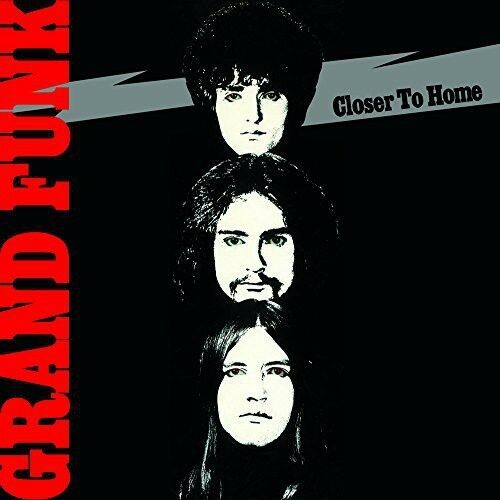
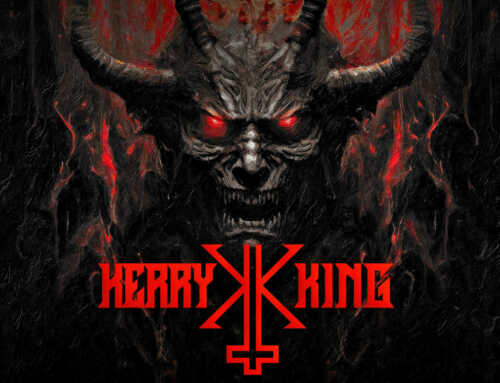
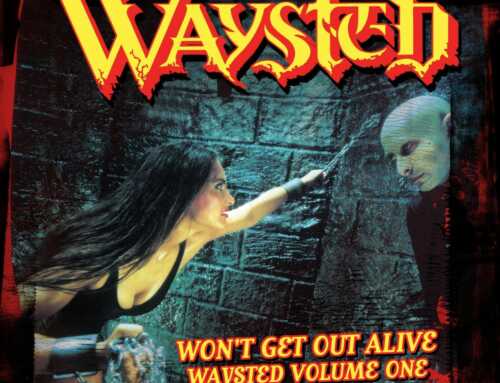
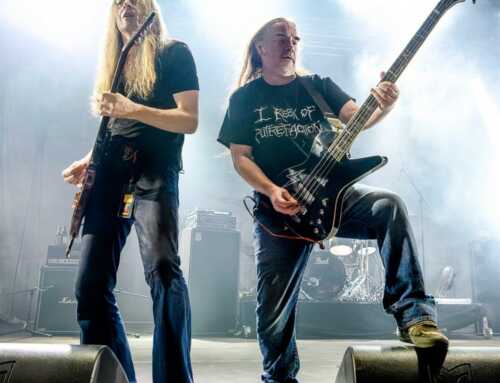
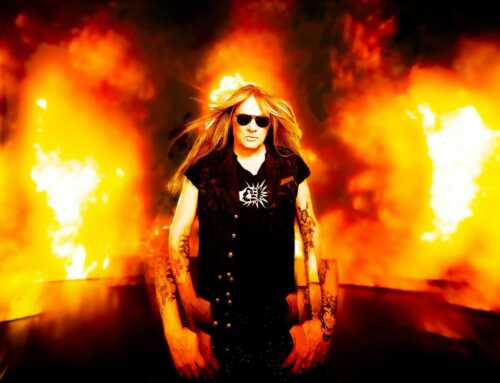
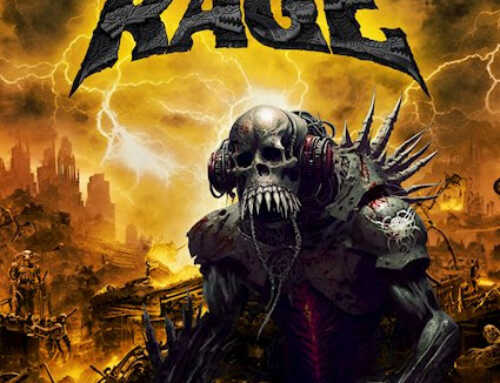
Great job, Mark is such a good hearted man, and it came thru in all his answers. If I could add a suggestion, I would ask that you get him to speak of the actual recording techniques they used to get those truly original and iconic sounds on their albums. To me, they were almost as much of an influence as the songs themselves. Nobody sounded like the Funk. 🙂